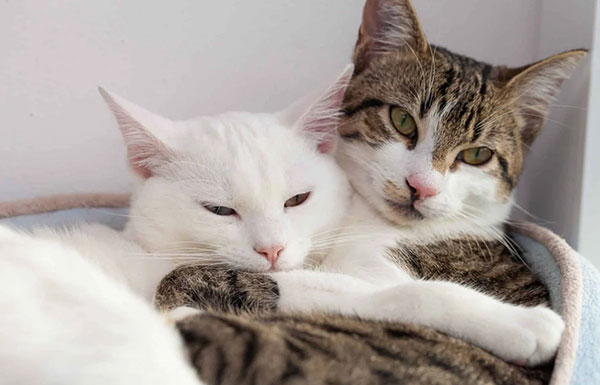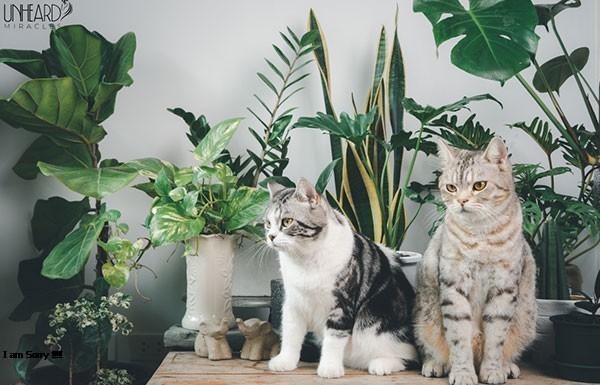
Many cat owners believe that in the male vs. female cat debate, male cats are naturally more affectionate than females, but is there any truth to this idea? For some, male kitties seem like the ultimate lap companions, always eager for cuddles, while female cats are thought to be a bit more reserved. However, affection in cats isn’t just about gender—it’s shaped by a mix of factors like personality, socialization, and even if the feline is neutered or spayed.
In the male vs. female cat debate, both sides have their pros and cons. To truly understand which gender might be more affectionate, let’s explore what influences a cat’s loving nature and uncover the surprising truths behind those cuddly purrs.
Are Male Cats More Affectionate Than Female Cats?
When comparing affection levels, many people believe male cats tend to be more affectionate. But is there any solid evidence to back this up? Surprisingly, research hasn’t found a definitive link between a cat’s gender and its tendency to be loving. Some studies show slight personality differences, but they don’t make one gender better than the other.
In general, male cats may seem friendlier, especially if they’re neutered. Neutering reduces roaming and other behaviors, which can lead male kitties to stay closer to home and seek more attention from their humans.
- Affection levels aren’t determined by gender alone.
- Neutering reduces roaming behavior, especially in males.
- Breed and upbringing can influence a cat’s personality and level of affection.
- Every feline is unique, and individual personality plays a huge role.
Factors That Influence a Cat’s Affectionate Nature
1. Neutering Status
Does neutering affect affection? The short answer is yes, though not always in the way we’d expect. Neutering, for both males and females, tends to calm them down. Male cats, once neutered, are less likely to roam, which keeps them closer to their family. This can make them appear more affectionate because they’re around more often to seek out affection.
Female cats may also display increased affection after spaying, as it removes the hormonal cycles that drive some of their roaming and vocalization behaviors. So, in both male and female cats, neutering can play a role in how much they bond with you.
2. Breed Differences
The breed of a cat can have a significant impact on personality and affection levels. Some breeds, like the Ragdoll or Siamese, are naturally more social and affectionate, regardless of gender. If you’re looking for an especially loving companion, researching breed tendencies might be more important than considering gender alone.
3. Upbringing and Socialization
Cats that experience a loving and social upbringing are generally more affectionate, whether male or female. Kittens that interact with humans early on, preferably before seven weeks, tend to be friendlier and less fearful. Proper socialization at an early age shapes a cat’s personality more strongly than its gender.
Male vs. Female Cats: Pros and Cons
For those considering a new pet, understanding the pros and cons of male vs. female cats can be helpful. Here’s a breakdown to help you decide:
-
Male Kitties:
Often larger and more muscular.
May show fewer signs of aggression if neutered.
Tend to roam less after neutering and are often perceived as friendlier.
-
Female Kitties:
Generally smaller and can be more independent.
May be more vocal, especially if not spayed.
Often highly affectionate but may need more time to warm up.
These differences aren’t set in stone, though. Both male and female kitties can develop deep, affectionate bonds with their owners if given love, patience, and understanding.
Are Female Cats More Aggressive Than Male Cats?
It’s a common belief that female felines may be more aggressive, particularly if they’re not spayed. Female kitties in heat can display vocal behaviors and may become more defensive, especially if protecting kittens. However, neutering or spaying can balance these behaviors, making gender less of a factor in aggression.
Aggression is more likely related to a cat’s personality, past experiences, and socialization. With the right care and training, both male and female kitties can grow into gentle and affectionate pets.
Do Female Cats Become More Affectionate After Spaying?
You might be bothered about how spaying could affect your cat’s personality. Although the procedure does have some noticeable effects, but most of them are good. For many cats, their playfulness and affection don’t change and stay the same.
Is It Better to Have a Male or Female Cat?
When it comes to deciding between a male and a female cat, there’s no one-size-fits-all answer. Both genders can be affectionate, and factors like breed, early socialization, and personality are likely to impact how close they become with you. For a more affectionate relationship, focus on:
- Choosing a breed known for friendliness if breed tendencies matter to you.
- Ensuring your cat is neutered or spayed for a calmer, more balanced temperament.
- Providing a loving, stable environment where your cat feels safe.
Are Female Kittens Better Than Males?
Whether female kittens are “better” than males depends on your personal preferences and lifestyle. Kittens are generally playful, curious, and affectionate, regardless of gender. Early socialization and bonding activities can nurture a kitten’s affection, making both male and female kittens equally loving as they grow up.
Difference Between Male and Female Cats
- Size: Male felines are usually bigger, while female kitties are often smaller and lighter.
- Independence: Female felines can sometimes be more independent, but this can differ from cat to cat.
- Affection Levels: Male kitties are often seen as more affectionate, though this really depends on each cat’s personality and how they were raised.
- Bonding with Humans: Both male and female kitties can form close, loving bonds with their owners. Affection isn’t just based on gender.
- Unique Personalities: Every cat, male or female, has its own personality. How affectionate a cat is can depend on its experiences and how it was treated growing up.
Conclusion
In the end, the male vs. female cat debate on affection comes down to each feline’s personality. While some male cats might appear more loving and some females more independent, each cat has a unique character shaped by breed, upbringing, and socialization. For the best chance at a close bond, give your feline plenty of love and patience no matter their gender.

Can you be more specific about the content of your article? After reading it, I still have some doubts. Hope you can help me.
Thank you for your sharing. I am worried that I lack creative ideas. It is your article that makes me full of hope. Thank you. But, I have a question, can you help me? https://accounts.binance.info/ru/register?ref=O9XES6KU
Your article helped me a lot, is there any more related content? Thanks!
Thank you for your sharing. I am worried that I lack creative ideas. It is your article that makes me full of hope. Thank you. But, I have a question, can you help me? https://accounts.binance.info/kz/register-person?ref=K8NFKJBQ
I don’t think the title of your article matches the content lol. Just kidding, mainly because I had some doubts after reading the article.
Thank you for your sharing. I am worried that I lack creative ideas. It is your article that makes me full of hope. Thank you. But, I have a question, can you help me?
Thank you for your sharing. I am worried that I lack creative ideas. It is your article that makes me full of hope. Thank you. But, I have a question, can you help me? https://www.binance.info/register?ref=IXBIAFVY